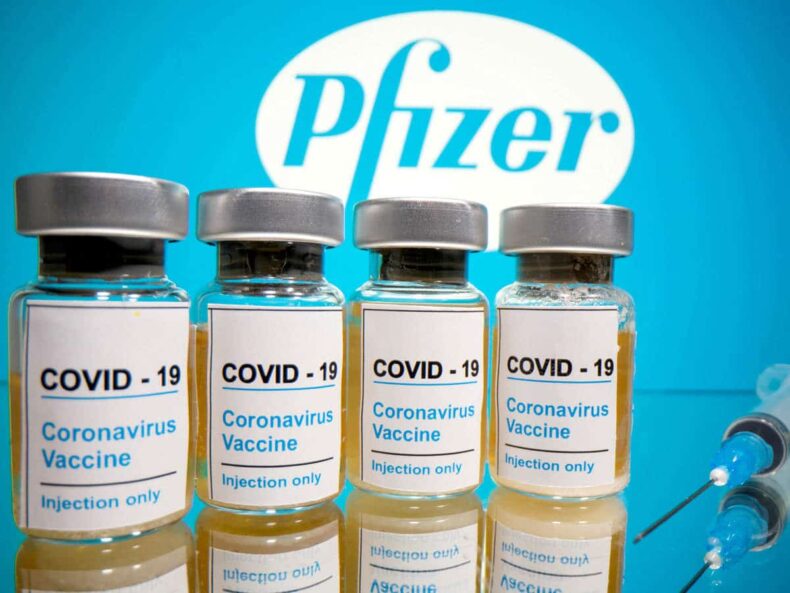The Indian authorities purchase around 50 million doses of Pfizer Inc and German partner BioNTech SE’s Covid-19 vaccine. The drugmaker has not yet sought permission for the use of its vaccine in India.

The Centre is in talks with western vaccine makers to get tens of millions of doses in the next few months.
This will accelerate the Covid-19 vaccination program in India and relieve the burden on vaccine production.
CURRENT VACCINATION STATUS
While the coronavirus cases in the country have eased from a devastating peak in April and May, government officials have said the second wave is not over.
Recording a jump in new Covid cases, India on Wednesday logged 38,553 new infections and 497 fatalities in the last 24 hours.
The nation rolled out the largest vaccination drive. According to the most recent government figures, the country has fully vaccinated about 115 million people or around 12% of its estimated 944 million adults.
However, the country heavily relies on Covi-shield, the AstraZeneca vaccine by the Serum Institution of India. The other vaccine out in circulation is homegrown Covaxin produced by Bharat Biotech. By December, the government hopes to have vaccinated the entire adult population.

WHAT’S THE DEAL WITH PFIZER?
India is expected to receive about seven million doses of a vaccine made by Moderna Inc. from the U.S. through COVAX.
The main objective of the program stands to supply Covid-19 vaccines to poorer nations.
Pfizer has not sold to any country without obtaining indemnity against legal action over any adverse effects of its product. India has not granted indemnity to any COVID-19 vaccine maker.
The government had met one of Pfizer’s other critical demands by dropping a requirement that foreign vaccines undergo local trials. The Pfizer vaccines are expected to be delivered in August, according to a government official.
The authorities have stated that the deal is in progress, and a compromise is being worked out. The agreement has not been sealed yet, but the hopes are high.
FIGHT AGAINST DELTA VARIANT
With the increasing spread of the Delta variant, the efficacy of the existing vaccines against the variant comes into question.
While the coronavirus cases in the country have eased from a devastating peak in April and May, government officials have said the second wave is not over.
Last week, the country approved J&J’s one-shot vaccine for emergency use, adding to the vaccines from AstraZeneca, Bharat Biotech, Russia’s Gamaleya Institute, and Moderna granted such approval.
Meanwhile, in terms of administering booster vaccine shots in the country, senior government official and NITI Aayog Member (Health) Dr VK Paul released his statement on Tuesday saying that the national expert committee on Covid-19 vaccination has discussed the issue of giving booster vaccine doses and it is being looked into very deeply.
At the same time, WHO has called for a prohibition on booster doses. Experts have said that large-scale vaccination is India’s best bet against the fast-spreading Delta variant of the coronavirus.














